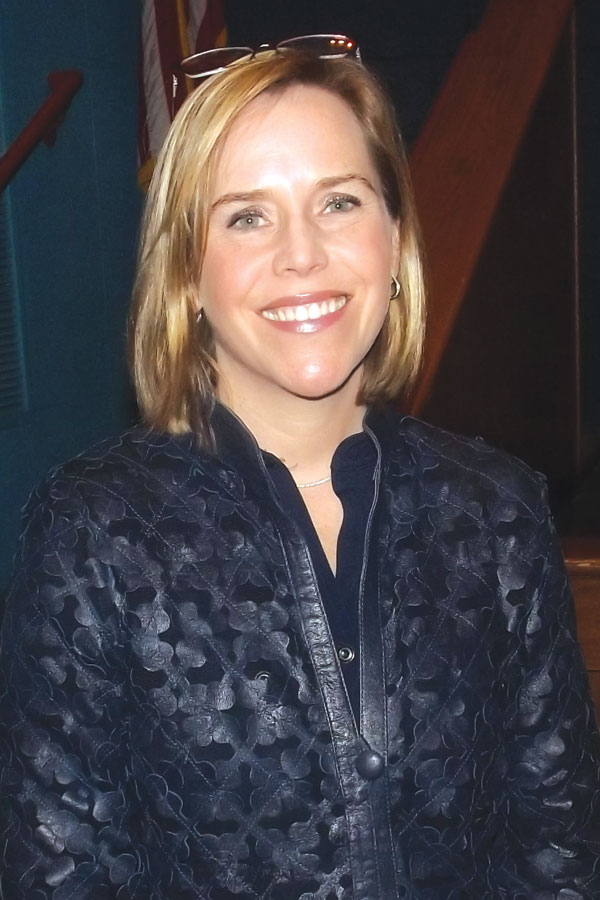The Lakeland community was relieved to find Rev. Dr. Lillian Daniel, despite the frigid weather, prepared to deliver an energetic talk in honor of the college’s annual Founders Day celebration on Feb. 19, focusing on the benefits of seeking organized religion in the midst of a culture favoring the pursuit of ambiguous “spirituality.”
Daniel, senior minister of First Congregational Church in Glen Ellyn, Illinois, author, and co-host of the television program 30 Good Minutes on WTTW Chicago, not only intrigued the crowd with her unconventional approach to the age-old question of religion vs. spirituality, but with her stylish look and casual use of slang terms and clever metaphors.
Entitled “When ‘Spiritual but not Religious’ is Not Enough,” Daniel’s lecture, based off her new book by the same name, began with the reverend’s opinion of faith’s deterioration into “touchdown theology,” which is “the clamor for miraculous guarantee.”
Referring to the reverend that attributed the Denver Broncos’ prosperity one season to divine intervention, Daniel said, “[Touchdown theology] is a rabbit warren of ridiculous scenarios that make no sense, but people fall for it, even ministers. They look for the simplistic answer, the miraculous guarantee—I can see Jesus rolling his eyes in heaven.”
The narcissistic downsizing of faith into something which satisfies the every desire of believers through miraculous measure is embarrassing to Daniel as a Christian, and she is disheartened to see the media use the flaw as justification of their mocking faith.
Continuing on narcissism, Daniel expressed, “We have become covetous of each others’ religions,” leading to the rapid trend of considering oneself part of a faith, such as Buddhism, without truly working toward becoming part of its community or taking the time to learn about its rich traditions and intellectual positions. Instead, many favor a narcissistic faith free of structure centered around the self, which they defend as the pursuit of “spirituality.”
Daniel combats these sentiments by detailing the benefits of partaking in organized religion, which include fellowship and the ability to study and have intellectual conversations around a faith so intricately developed, allowing for growth and exploration impossible within the bounds of self-made religion; after all, the core of faith is the discovery of something bigger than one’s self.
For those who have experienced hurt in the church, Daniel says one would not judge France on the actions of a single French person, and the resolve is sometimes as simple as “getting up and moving” to the right church.
“Any idiot can see God in the sunset,” Daniel said as the lecture came to a close. “What is remarkable is finding God in the context of a flawed human community and in a tradition bigger than you are with people who may not reflect God back to you in your own image.”


